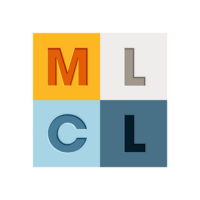Once your son or daughter turns 18, although possibly only a precious youngster in your mind, he or she is an adult according to the law. This transition to adulthood, means parents lose much of the control over they otherwise had over their young adult by virtue of simply being the parent. Perhaps this may not seem like such a big deal at first; however, life can change in the blink of an eye. An unplanned accident or illness can quickly complicate matters. While it may be difficult to imagine, it is nevertheless vital to plan for because suddenly your child’s status as an adult supersedes your ability to make decisions on his or her behalf. This debacle sounds like a headache, doesn’t it? Well, fortunately, some advanced planning can put your mind at rest, so that in the unfortunate event you are faced with such a scenario, it will be much more manageable. You should consider having the following documents drafted for your young adult.
Healthcare Power of Attorney
This document will allow you to access your young adult’s medical records and make certain medical decisions on his or her behalf if incapacitated. It will enable your young adult to name an “Agent” (and Alternate Agents, if desired) to act on his or her behalf. Without this document, the above situation could require the courts to step in, which will likely be a great deal of time (and expense) for those seeking to obtain access to information or power to act on the incapacitated individual’s behalf. Therefore, we strongly urge anyone over the age of 18 to execute this document.
Living Will
This is another document that becomes effective once an individual is either unconscious or terminally ill and can no longer communicate his or her wishes to either be kept alive, resuscitated, or to decline specific treatments that otherwise could sustain his or her life indefinitely. In addition to these powers, this document dictates certain post-life decisions, like organ and tissue donation. Given the living will’s obvious relevance in scenarios that might necessitate a healthcare power of attorney, we recommend that this document is executed in conjunction with the above.
Durable (Financial) Power of Attorney
In addition to a healthcare power of attorney, young adults should consider executing a durable power of attorney in favor of a trusted family member. Like the healthcare power of attorney, the durable power of attorney allows the young adult to appoint an Agent to act on his or her behalf; however, this document enables the Agent to make decisions regarding legal and financial matters. Many important institutions are accustomed to dealing with these materials and require one, so having it in place makes managing a young adult’s affairs much easier and more efficient.
Will
Unlike the above documents, I would not consider a will to be an absolute must-have for every single young adult; however, it still should be considered and may be desirable in certain instances. By default, an individual who dies “intestate” (without a will) in Ohio will still have his or her assets distributed according to the default rules set forth in the Ohio Revised Code. Provided the young adult has no children or a spouse, the default would have his or her assets pass to the young adult’s parents. If the young adult desires to leave any assets to someone other than his or her parents, then a will would be necessary to accomplish this. Additional situations not covered by this post would necessitate a will, but each case is unique, so it is important to explore the topic with the estate planning attorney who is drafting the other above documents to see if it is a good idea to execute one.
Why Wait?
Even though every parent wants to think that the above documents will never be needed, it is important to keep in mind, that even if the situation doesn’t arise where they are required, these documents can offer substantial peace of mind in the off chance that an unfortunate circumstance arise. Perhaps you are reluctant to have them prepared because your young adult is now unmarried, has no child, or assets, and you believe this will change in a few years, making the documents obsolete. While that may be true, keep in mind, that none of the above documents are irrevocable, so they can be revisited at any point of time in the future when the young adult’s personal situation has changed in a way that requires additional consideration. In fact, the documents should be revisited as time passes to accommodate new significant life events and to make sure the documents still accomplish the individual’s wishes.
In short, given the peace of mind that the above documents deliver, and how quickly they can be modified to accommodate changed circumstances, it is not prudent to allow your young adult to continue living without them in place. If you have a young adult as a child (or if you are a young adult reading this), please do not hesitate to reach out to one of our estate planning attorneys who can help you evaluate what documents are appropriate for your individual scenario.

